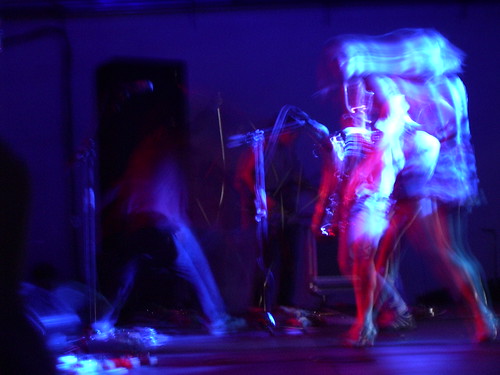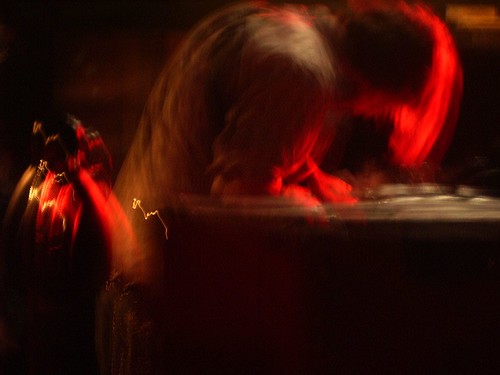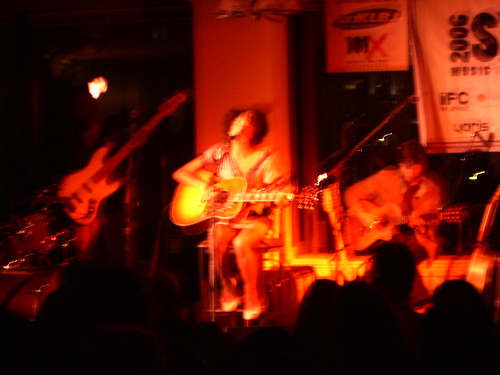The setting is Pimlico school, Westminster, in the mid-1980s. "Hip hop was everywhere, everybody was writing things on their tracksuits and colouring their white trainers black, having freestyle battles on the concourse," reminisces Rodney Smith, aka Roots Manuva, aka British Hip Hop's Brightest Hope. "It was like the hip hop school, huhuhuh!"
And so it was that young Rodney was bitten by the hiphop bug - then written off as some flitting fad - as it swept through the UK's nightclubs and playgrounds. "I tried break dancing. I even tried scratching, totally wrecked a lot of records. I thought you were supposed to drag the needle across the record ... Sorry, Mum! It was something I loved, but I never imagined it would pay my rent. It never felt like something I could be a part of."
Ironic words, considering Roots Manuva's new album, Run Come Save Me, proves that hip hop is no longer an exclusively American culture but an international language encompassing a thousand tongues, including Rodney's London accent and his Jamaican roots. Whereas previous British rappers have been scuppered by their parochialism, he has taken the loose, mix 'n' match cultural identity of contemporary London and created an album that sounds global .
Roots, now 28, draws as much on the sounds of Brixton - dancehall reggae, skronky techno and smoked-out dub - as American funk and rap. Like Tricky, like Muslim agit-rappers Fun'Da'Mental, like 1970s ska-punks The Specials, his music celebrates Britain's unique, messily integrated eclecticism better than Robin Cook's clumsy tikka masala metaphors ever could.
"I'm a second-generation UK black, just trying to find his feet, spiritually and economically," he says. His lyrics are complex and spiritually troubled, and the question of identity is a key theme. "I'm just trying to make sense of this Roots Manuva character," he laughs. "Where Roots ends and Rodney begins."
His parents, immigrants from Banana Cove in Jamaica, were strict; his father is a Pentecostal deacon. A career in hip hop, Roots remembers, "was not something they encouraged; it was something they discouraged". And yet many MCs - from Fugees's Wyclef Jean to Mos Def - come from religious backgrounds, swapping preaching for another form of oratory.
The transition isn't so simple in Roots's case, however; moral turbulence courses throughout Run Come Save Me. Track after track finds Roots tussling with religion, spirituality (pointedly two separate things to him) and guilt.
"If I'd had parents who were really into music, who had a massive record collection, I don't think I would've been so into music," he says. "That I had to go next door to hear the latest reggae tune, or that our parents wouldn't take us out to the cinema or to the arcade, made me really appreciate it when we did do those things.
Have his parents accepted his lifestyle choice? "Yeah, they're cool. They still can't believe I'm making any money from it. They always ask: 'Why aren't you on Top of the Pops?'" And he really should be. Last week, when his sublime Witness (One Hope) single entered the UK charts at 45, Atomic Kitten were at number one with their insipid cover of Eternal Flame.
Which is a better representation of modern young Britain? Yet Roots is sanguine about the mainstream culture that has yet to embrace him. "Radio is all about midrange frequencies and melodies, and Witness isn't too melodic. It's harsh."
But he is convinced he's part of a burgeoning revolution. "There's a whole brand-new class, people in music and the arts and sports ... a new uneducated middle class. We're shopping in Marks and Spencer and using balsamic vinegar, but we've got no GCSEs, no A-levels and no degrees.
"Technology is changing everything," he says, and he should know. He just bought a DVcam so he can make his own movies. "They're just abstract art movies at the moment 'cos I can't work the camera properly. Maybe I should go to one of them weekend courses that teach you how to be the next Steven Spielberg."
Or maybe he could just continue being the first Roots Manuva.
(c) 2001 Stevie Chick




No comments:
Post a Comment